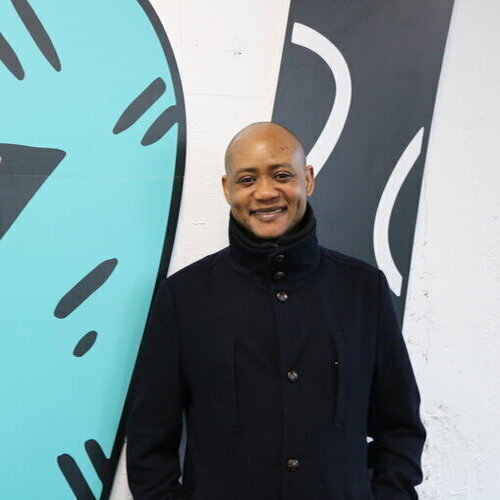PhD, MPhil, MRes Journalism, Media & Communication
ApplyResearch opportunities
The Journalism, Media & Communication (JMC) PhD is taken within the Faculty of Humanities and Social Sciences, and supported by a team of internationally renowned academics.
PhD students in JMC are expected to undertake research which results in a thesis that contributes to the wider literature and/or practice in the field, thereby making an original contribution to current knowledge. Students can also expect to contribute to the vibrant research culture in the subject, including research seminars, the MediaComm Jam and the Graduate School research student network.
A PhD in JMC at Strathclyde may incorporate more than one of the following areas:
- using theoretical perspectives from the areas of media and communication to advance knowledge in associated areas
- undertaking the critical study of the media, communication or journalism industries, and their practices and policies
- studying intersecting in/equalities in history, culture and/or society as they relate to journalism, media and communication
- advancing understanding of the consumption of media and communication and how that affects individuals, communities or the media industry
- assessing and evaluating approaches developed in and across different disciplinary traditions
At Strathclyde, we can offer supervisory expertise in a variety of areas within JMC, including:
- journalism theory and practice
- social media
- political communications
- health and science communications
- gender, media and communication

The Place of Useful Learning
UK University of the Year
Daily Mail University of the Year Awards 2026
Scottish University of the Year
The Sunday Times' Good University Guide 2026

Fees & funding
All fees quoted are per academic year unless otherwise stated.
Entrants may be subject to a small fee during the writing up period.
Fees may be subject to updates to maintain accuracy. Tuition fees will be notified in your offer letter.
All fees are in £ sterling, unless otherwise stated, and may be subject to revision.
Annual revision of fees
Students on programmes of study of more than one year (or studying standalone modules) should be aware that the majority of fees will increase annually.
The University will take a range of factors into account, including, but not limited to, UK inflation, changes in delivery costs and changes in Scottish and/or UK Government funding. Changes in fees will be published on the University website in October each year for the following year of study and any annual increase will be capped at a maximum of 10% per year. This cap will apply to fees from 2026/27 onwards, which will not increase by more than 10% from the previous year for continuing students.
| Scotland | £4,786 |
|---|---|
| England, Wales & Northern Ireland | £4,786 |
| Republic of Ireland |
If you are an Irish citizen and have been ordinary resident in the Republic of Ireland for the three years prior to the relevant date, and will be coming to Scotland for Educational purposes only, you will meet the criteria of England, Wales & Northern Ireland fee status. For more information and advice on tuition fee status, you can visit the UKCISA - International student advice and guidance - Scotland: fee status webpage. Find out more about the University of Strathclyde's fee assessments process. |
| International | £18,050 |
| Additional costs | International students may have associated visa and immigration costs. Please see student visa guidance for more information. |
| Funding | Take a look at our funding your postgraduate research web page for funding information. You can also view our scholarships search for further funding opportunities. |
| Postgraduate research opportunities | Search for all funded and non-funded postgraduate research opportunities. |
Please note: the fees shown are annual and may be subject to an increase each year.
International students
We've a thriving international community with students coming here to study from over 140 countries across the world. Find out all you need to know about studying in Glasgow at Strathclyde and hear from students about their experiences.

Postgraduate research at the Strathclyde Doctoral School
The Strathclyde Doctoral School offers a vibrant, student-centred research and training environment, dedicated to supporting both current and future research talent.
Bringing together all four of our faculties, it is committed to enhancing the student experience, increasing research outputs and opportunities, and ensuring that training is delivered at the highest standard.
As a postgraduate researcher, you will automatically become a member of the Strathclyde Doctoral School.


Our research
Journalism, Media and Communication is an interdisciplinary research area within the Faculty of Humanities and Social Sciences. We regularly work in conjunction with colleagues from Government & Public Policy, Social Policy, Psychology, Modern Languages, English, History, Psychology, Marketing, and others.

The research community in Strathclyde is robust – it is built on integrity, innovation, research, diversity, and mutual respect. Both home and international students from Africa, Asia, the US, Canada, and Australia are provided with a serene environment based on best practices.

Among the highlights of this journey has been the opportunity to engage with cutting-edge research and participate in academic conferences, which has significantly broadened my academic and professional network.
Supervisors
All PhDs have two supervisors, and the supervisory team may be comprised of colleagues from different subject areas or Schools within the Faculty. Interdisciplinary applications are strongly encouraged. The specialist areas of supervisors within JMC are listed below:
| Supervisor | Area of interest |
|---|---|
|
|
|
Petya Eckler (Senior Lecturer in Journalism, Media & Communication) |
|
|
Lesley Henderson (Professor of Science Communication, Journalism, Media and Communication) |
|
|
Michael Higgins (Senior Lecturer in Journalism, Media & Communication) |
|
|
|
|
|
|
Fiona McKay (Lecturer in Journalism, Media and Communication) |
|
|
|
|
Esperanza Miyake (Chancellor’s Fellow in Journalism, Media and Communications) |
AI and digital technologies
|
|
Camila Mont'Alverne (Lecturer in Journalism, Media, and Communication) |
|
|
|
|
Chamil Rathnayake (Lecturer in Journalism, Media & Communication) |
|
Support & development
The Graduate School
As a postgraduate researcher in Journalism, Media and Communication, you'll also be a member of our Faculty Graduate School. We're members of the Scottish Graduate School for Arts and Humanities and the Scottish Graduate School of Social Science. All registered PhD students are members of one or both of these Schools (depending on your subject discipline), which provide training, event and funding opportunities. They also encompass the AHRC Doctoral Training Partnership (SGSAH) and the ESRC Doctoral Training Partnership (SGSSS), which offer fully-funded studentships. The university-wide lead for AHRC PGR/SGSAH and ESRC PGR/SGSSS is Dr Mark Ellis.
The Graduate School is also a well-equipped physical space, which further facilitates our strong emphasis on interdisciplinary working.
Postgraduate Certificate in Researcher Professional Development (PgCert RPD) for MPhil/MRes
While pursuing your PhD or MPhil in JMC, you'll also undertake the University’s Postgraduate Certificate in Researcher Professional Development (PG Cert RPD), which provides comprehensive professional and personal development training for all postgraduate research students.
The programme offers a tailored suite of workshops, courses, events, online provision and resources designed to meet the development needs of postgraduate research students. PhD students will graduate with the University’s Postgraduate Certificate in Researcher Professional Development. This is a unique qualification, where students can gain credits for academic-related activities, such as conference presentations and organisation. The aim is to develop skilled, confident researchers and effective and valuable potential employees.
Careers
The University Careers Service can help you with everything from writing your CV to interview preparation. Take a look at our careers service pages to get more information.
Student support
From financial advice to our IT facilities, we have a wide range of support for all students here at Strathclyde. Get all the information you need at Strathlife.
Apply
Entry requirements
For PhD, normally, a first-class or upper second-class Honours degree, or overseas equivalent, plus a Masters degree in a relevant area.
How to apply?
If you're interested in studying for a PhD in JMC, the first thing you need to do is to find out if there’s a supervisor available to oversee your studies. You can find that information in the supervisor's tab.
The other key element is your research proposal. Read our guidelines on writing proposals.
Applications are via our Pegasus online portal using the apply buttons below.
When applying, you'll be asked to upload:
- your research proposal of 1500 to 2000 words in length, detailing the subject area and topic to be investigated
- scans of degree certificates/transcripts
- two academic reference letters (if it would be easier for you, you can ask your referees to send their letters direct to hass-postgrad@strath.ac.uk placing your name and the word "reference" in the subject line)
- confirmation of funding
International students
If you're an international applicant and don’t have a degree from a UK University (or a University where the primary medium of instruction is English), you'll also be required to provide an IELTS certificate (overall minimum band score of 7 with no individual test score below 6.5, the test must be taken within two years of the programme start date).
Start date
Most PhD students start in October, so they move forward as one cohort, but you can start at any time of year (people often have to defer until they find funding). Keep an eye on our funding databases (PGR Opportunities and University Scholarships) for any forthcoming Strathclyde research studentship opportunities.
MRes applications
Closing date for applications: Friday 24 April 2026
- Stage 1: applicants must apply online and have uploaded the required documentation, no later than Friday 24 April 2026 deadline. Late applications will not be accepted
- Stage 2: applicants who have been successful in the initial selection from Stage 1, will be called for interview by mid-May 2026
Start date: Oct 2025 - Sep 2026
Journalism, Media and Communication
Start date: Oct 2025 - Sep 2026
Journalism, Media and Communication
Start date: Oct 2025 - Sep 2026
Journalism, Media and Communication
Start date: Oct 2025 - Sep 2026
Journalism, Media and Communication
Start date: Sep 2026
Journalism
Start date: Oct 2026 - Sep 2027
Journalism, Media and Communication
Start date: Oct 2026 - Sep 2027
Journalism, Media and Communication
Start date: Oct 2026 - Sep 2027
Journalism, Media and Communication
Start date: Oct 2026 - Sep 2027
Journalism, Media and Communication
Start date: Sep 2026
Journalism
Start date: Sep 2027
Journalism
Start date: Sep 2027
Journalism
Start date: Oct 2027 - Sep 2028
Journalism, Media and Communication
Start date: Oct 2027 - Sep 2028
Journalism, Media and Communication
Start date: Oct 2027 - Sep 2028
Journalism, Media and Communication
Start date: Oct 2027 - Sep 2028
Journalism, Media and Communication
Contact us
Research enquiries
Supervisors
Enquiries for the PhD Journalism, Media and Communication can be directed to potential supervisors.
Admissions
Graduate school
Fees & funding
All fees quoted are per academic year unless otherwise stated.
Entrants may be subject to a small fee during the writing up period.
Fees may be subject to updates to maintain accuracy. Tuition fees will be notified in your offer letter.
All fees are in £ sterling, unless otherwise stated, and may be subject to revision.
Annual revision of fees
Students on programmes of study of more than one year (or studying standalone modules) should be aware that the majority of fees will increase annually.
The University will take a range of factors into account, including, but not limited to, UK inflation, changes in delivery costs and changes in Scottish and/or UK Government funding. Changes in fees will be published on the University website in October each year for the following year of study and any annual increase will be capped at a maximum of 10% per year. This cap will apply to fees from 2026/27 onwards, which will not increase by more than 10% from the previous year for continuing students.
| Scotland | £5,006 |
|---|---|
| England, Wales & Northern Ireland | £5,006 |
| Republic of Ireland |
If you are an Irish citizen and have been ordinary resident in the Republic of Ireland for the three years prior to the relevant date, and will be coming to Scotland for Educational purposes only, you will meet the criteria of England, Wales & Northern Ireland fee status. For more information and advice on tuition fee status, you can visit the UKCISA - International student advice and guidance - Scotland: fee status webpage. Find out more about the University of Strathclyde's fee assessments process. |
| International | £19,850 |
| Additional costs | International students may have associated visa and immigration costs. Please see student visa guidance for more information. |
| Funding | Take a look at our funding your postgraduate research web page for funding information. You can also view our scholarships search for further funding opportunities. |
| Postgraduate research opportunities | Search for all funded and non-funded postgraduate research opportunities. |
Please note: the fees shown are annual and may be subject to an increase each year.

